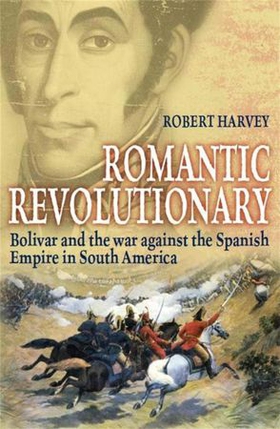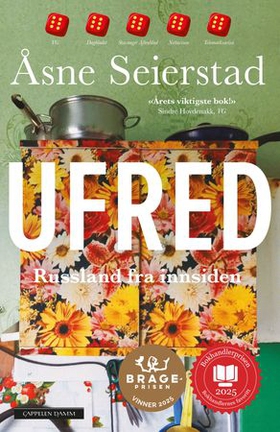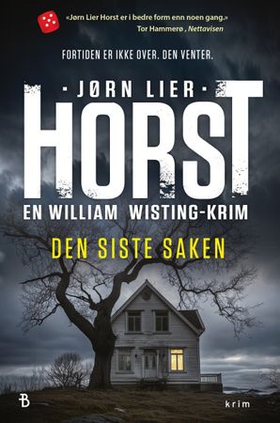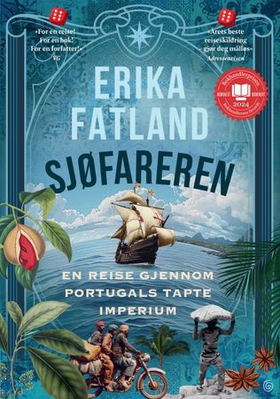
Legg til i ønskeliste
Les gratis utdrag
Romantic Revolutionary ebok
45,-
Simon Bolivar was the archetypal romantic revolutionary. Born into privilege and nurtured in the Rousseau's philosophy of the Homme Sauvage, it was not until the young colonial visited Europe that the taper of revolution was lit that sent the young man on a death-defying quest to fight for the people of his homeland, and eventually liberate the whole of continental South America.Bolivar's struggle for liberty is a story of extraordinary courage and fortune. Since the age of the Conquistadores, …
Undertittel
Simon Bolivar and the Struggle for Independence in Latin America
Forlag
Constable
Utgitt
15 desember 2016
Sjanger
Dokumentar og fakta, Historie
Språk
English
Format
epub
DRM-beskyttelse
LCP
ISBN
9781849018104
Simon Bolivar was the archetypal romantic revolutionary. Born into privilege and nurtured in the Rousseau's philosophy of the Homme Sauvage, it was not until the young colonial visited Europe that the taper of revolution was lit that sent the young man on a death-defying quest to fight for the people of his homeland, and eventually liberate the whole of continental South America.
Bolivar's struggle for liberty is a story of extraordinary courage and fortune. Since the age of the Conquistadores, South America was controlled from Spain with an iron grip. The Spanish army brutalised the people while the wealth of the continent was shipped away to Europe. In 1807 he returned to Caracas and joined the resistance movement, declaring independence for Venezuela four years later.
He soon gave up politics, however, to search for a military solution, devising the 'Decree of War until Death' in July 1813, and claiming the title El Liberador. Yet once again, after initial victories he found himself fleeing for his life. His final campaign from 1817 to 1821 saw the eventual liberation of Venezuela, Columbia, Equador and Panama. He continued his commitment to liberty with the subsequent conquest of Peru.
In 1825, the new nation of Bolivia was created in the spirit that had driven Bolivar himself to achieve so much - revolutionary zeal and enlightenment principles. Nonetheless, by 1828 Bolivar had declared himself a dictator. After assassination attempts and uprisings the liberator was finally hounded from office and eventually died as he waited to go into exile in Europe.
Bestselling author of The War of Wars, Robert Harvey bring a lifetime's fascination into Bolivar and explores the complex personality behind the revolutionary. He vividly recreates the story of the campaigns and draws a panoramic portrait of South America at the turning of the Spanish Empire.
Bolivar's struggle for liberty is a story of extraordinary courage and fortune. Since the age of the Conquistadores, South America was controlled from Spain with an iron grip. The Spanish army brutalised the people while the wealth of the continent was shipped away to Europe. In 1807 he returned to Caracas and joined the resistance movement, declaring independence for Venezuela four years later.
He soon gave up politics, however, to search for a military solution, devising the 'Decree of War until Death' in July 1813, and claiming the title El Liberador. Yet once again, after initial victories he found himself fleeing for his life. His final campaign from 1817 to 1821 saw the eventual liberation of Venezuela, Columbia, Equador and Panama. He continued his commitment to liberty with the subsequent conquest of Peru.
In 1825, the new nation of Bolivia was created in the spirit that had driven Bolivar himself to achieve so much - revolutionary zeal and enlightenment principles. Nonetheless, by 1828 Bolivar had declared himself a dictator. After assassination attempts and uprisings the liberator was finally hounded from office and eventually died as he waited to go into exile in Europe.
Bestselling author of The War of Wars, Robert Harvey bring a lifetime's fascination into Bolivar and explores the complex personality behind the revolutionary. He vividly recreates the story of the campaigns and draws a panoramic portrait of South America at the turning of the Spanish Empire.






